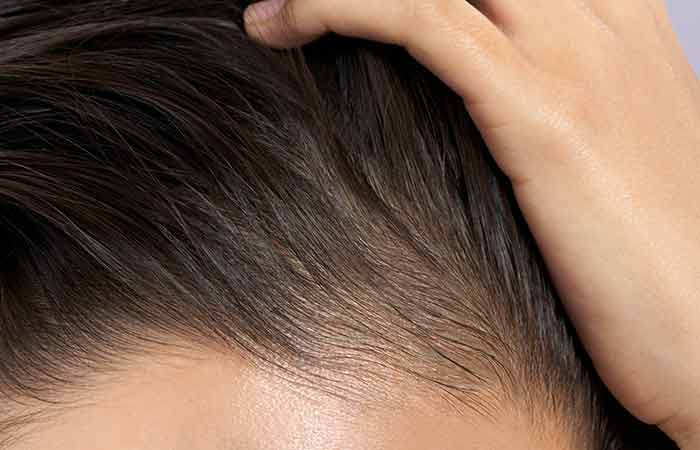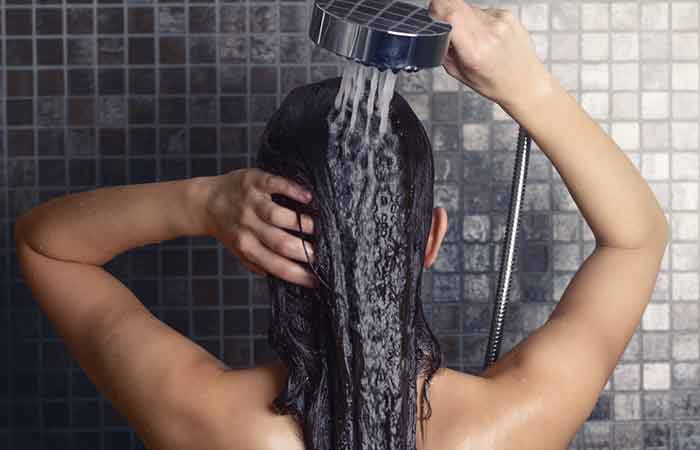Hard Water Hair Damage & Signs vs Soft Water
A good percentage of you can attest to having hard water supply in your homes. The water contains a high percentage of hard minerals such as calcium, magnesium, and sodium.
Regular contact with hard water with your hair can cause damages such as dry and brittle hair, dull-looking hair, hair breakage, excessive shedding, and in more severe cases, hair loss. Hard water has also been known to accentuate scalp conditions such as scalp psoriasis which causes constant itching.
You may not have noticed how much hard water is damaging your hair. To learn more about it, keep reading as we look into the signs of hard water hair damage and how you can help your hair regain its health.
How is Hard Water Bad for your Hair?
Hard water contains high levels of mineral content including calcium and magnesium. The build-up of minerals produces a film on the hair cuticle making it difficult for moisture to penetrate.
Without the needed moisture, hair is left dry and brittle with a high possibility of damage, breakage, and even hair loss.
The buildup of minerals can also be accumulated on the scalp, hence not allowing new hair to grow. You may experience stunted growth and even dandruff on the scalp. Moreover, it may weigh down your hair making it appear flat and lifeless. Especially for those with curly hair.
Hard water can ultimately affect hair color. It will cause it to look dull, faded, or discolored also depending on how often hard water comes into contact with your hair. The longer the exposure, the more severe the side effects.
Effects & Signs of Hard Water on Hair Damage
If you’re noticing that your hair feels brittle and looks dull, it may be an effect of hard water. More signs of hard water on hair include: a change in the texture, color, and moisture level of the hair; excessive shedding; a lack of shine; and an unpleasant smell. Some people also notice that their hair feels rough when they touch it.
The most common effects of hard water hair damage include;
- Hair breakage
- Thinning or reduced hair volume
- Tangles
- Hair frizziness
- A dry scalp

Even though hard water can’t cause permanent hair loss, there have been studies that reveal that it can weaken your hair strands leading to hair loss. Hard water may restrict blood flow to your hair follicles interfering with the growth of new strands.
Those with curly hair as well can notice reduced curls and no defined curl structure in their hair caused by exposure to hard water.
The water can coat the hair strands with a thin film of mineral buildup causing the hair with stretched curls that look flat and limp.
If the build-up occurs more on the scalp, the follicles will be blocked affecting the integrity of your curl pattern.
Luckily, these are short-term effects and no permanent damages have been recorded.
Long exposure to hard water simply affects the healthy growth of hair as it puts more stress on your hair. This is also the case for dyeing and bleaching the hair.
Do note that these side effects are more severe for individuals that have excess and psoriasis.
Tips for Washing Hair in Hard Water
Use a Clarifying Shampoo
A clarifying shampoo works by removing the mineral buildup weighing down the hair.
As the shampoo contains sulfates, your hair will be stripped of excess oils, dirt, and the excess minerals coating your hair follicles.
Select a good clarifying shampoo that will work on these minerals and not just pol and dirt buildup. Use it at least once or twice a week following up with moisturizers.
A chelating shampoo is also great. It’s clarifying but more importantly, it contains EDTA, that’s Ethylene Diamine Tetra Acetate, a chemical that rinses away minerals and deposits left in your hair follicles.
Because these shampoos can be quite strong for the hair, look for gentle shampoos, or those labeled for dry and sensitive hair.
Remember your hair is very sensitive because of long exposure to hard water. Hence, only use the shampoo sparingly to avoid more damage than aid.

Apply a Hair Mask
This is a very diverse solution because you can make your hair mask, use ayurvedic powders, or select chemical/ store-bought options. The purpose of the hair mask is to restore moisture and gloss to the hair.
Always go for a moisturizer and nourishing mask. A strengthening mask is also great if you have hair that easily breaks and has split ends. Moisturizing masks or deep treatments will have the tag moisture on the package.
Protein masks will contain hydrogenated proteins added to their ingredients. As for ayurvedic powders, good choices include
- Amla
- Aloe vera
- Henna/ Cassia
- Brahma
- Bhringraj
- Hibiscus, plus many more
Add these powders to your moisturizing mask and let them work on your hair for 15 to 30 minutes.
After shampooing your hair, massage the mask gently into the scalp. Work through to the tips of the hair and cover with a plastic bag or wrap. Leave the make for about five minutes and rinse. If you want deeper penetration, sit under a hooded dryer or steamer for 15 to 30 minutes, then rinse.
Use a Leave-in Conditioner
There are multiple types of leave-in conditioners on the market nowadays. Use one that offers you the slip and softness you need for your hair. Check the pH to ensure it’s low, this will allow to close the cuticles down and allow for the hair to retain as much moisture as possible.
Furthermore, it will minimize the mineral buildup on the hair moving forward. After you rinse out the deep conditioning treatment, spread the conditioner all over the hair to hydrate and moisturize the hair. Work from the roots to the tips to ensure it’s well saturated.
Try a Lemon and Vinegar Rinse
For some home remedies, try a lemon and vinegar rinse to loosen the mineral buildup on your hair. Apple cider vinegar is a good option because it lowers the hair’s pH and contains healthy vitamins for your hair including vitamins B and C.
After using your conditioner(not leave-in) pour a mixture of vinegar, lemon, and some water to dilute the mixture. For every cup of vinegar, add half a cup of lemon and three liters of water.
Use the solution to do a final rinse on your hair. This will balance the hair’s pH levels and remove any deposits left by the water that could dry out or damage the hair.
You can choose to use just one option like just vinegar and water or lemon and water. They’re both acidic enough to get the job done.
Soft Water for Your Hair
Soft water contains fewer minerals compared to hard water. Instead, it contains more sodium or salts, but that’s not damaging to the hair follicles as it is when you use hard water.
If you’re unsure if you have soft or hard water. Here are a few things you can do to confirm;
For hard water;
- Your hands often feel really dry after washing. They could form a film signifying excess minerals in the water. Also, it means the soap you use is reacting with calcium to form soap scum. You can see that in buckets, glassware, and silverware.
- You get white stains on clothes. Also, mineral stains that are caused by the harshness of hard water.
- Lower water pressure from pipes. Minerals are depositing inside the piping system reducing the interior diameter and restricting good water flow.
For soft water;
- Foam and lather foams very quickly when soap is introduced to water.
- Good water pressure
- Salty tasting water due to high sodium levels.
Hard Water vs Soft Water for Hair
Now that you know the difference between the two, let’s have a look at the two side by side as we see which one is better or worse for your hair.
You already know that hard water contains high levels of calcium and magnesium. This means there’s a film, calcium carbonate, that forms everywhere including your hair that causes damage. Here are some of the ways hard water has been known to affect hair;
- Hard water causes calcium build-up on the scalp restricting your scalp from absorbing moisture and hair products.
- The film that forms on the hair follicles makes the hair seem dull, dry, and frizzy.
- You use much more products to clean the hair and could sometimes make shampoos ineffective unless they’re chelating or clarifying shampoos.
- Hair can be brittle as the hard water covers the hair follicles as well.
- One can easily develop dandruff and have excess itchiness.
- Mineral build-up can cause the growth of bacteria and yeast infections.
As for soft water, sodium has been known to flatten our hair. It may appear to lack in volume. This can easily be corrected with a volumizing treatment or conditioner. Other than that, soft water rarely causes excess buildup that blocks pores and your scalp, hence a safer option for your hair.